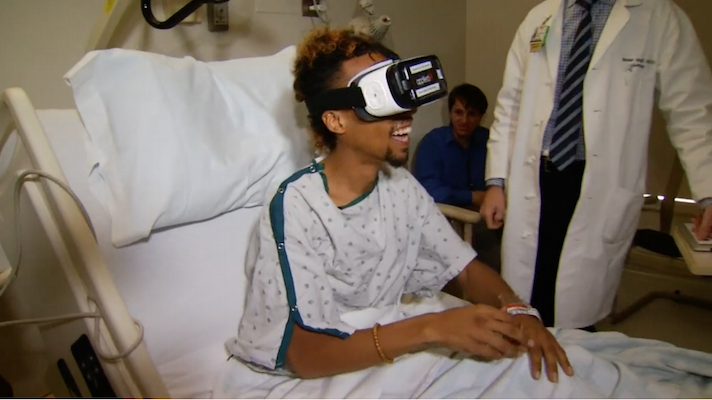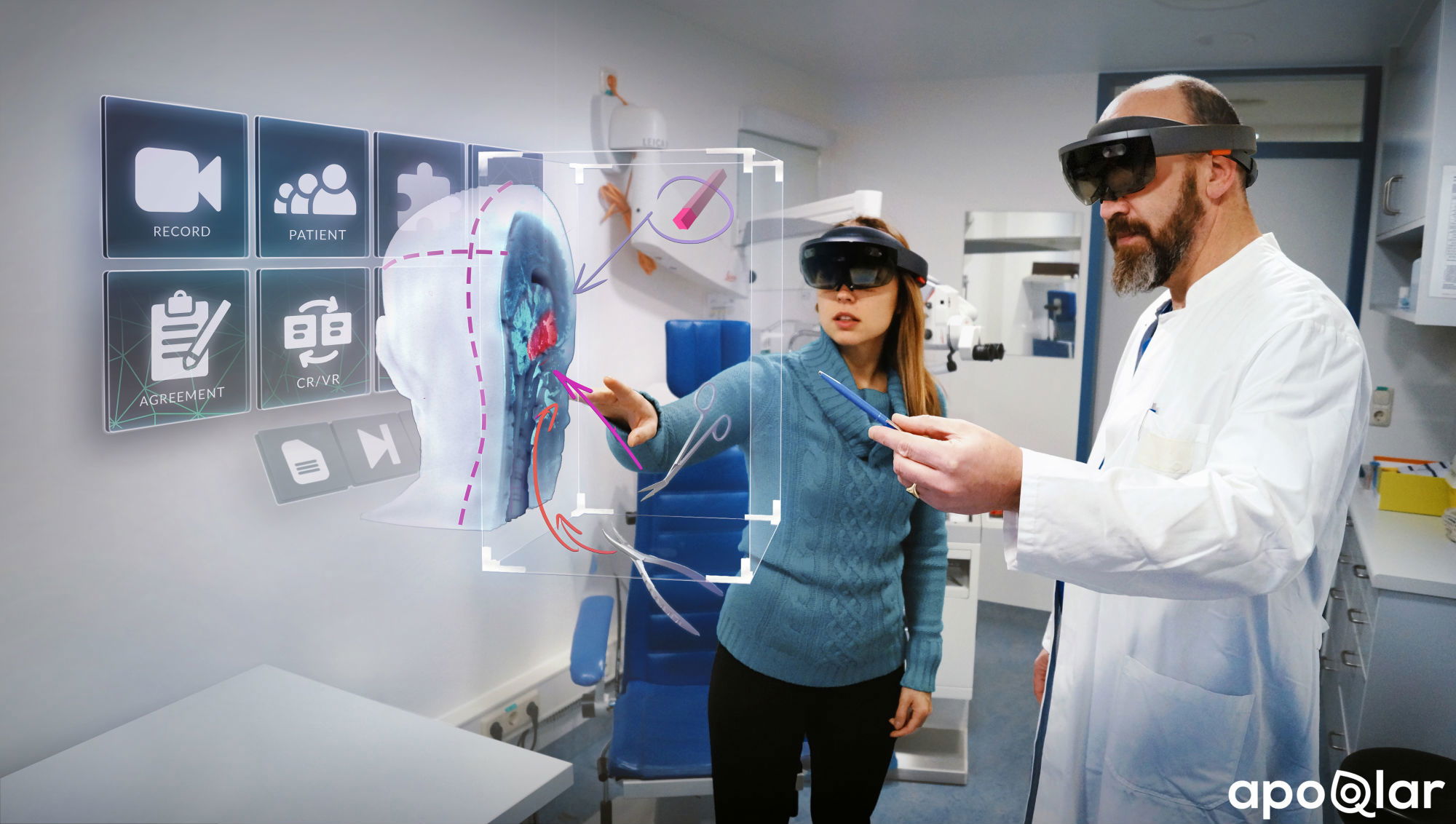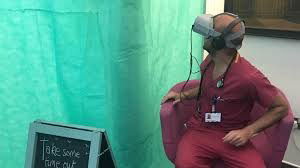
In the evaluation and treatment of many mental health problems, VR (Virtual Reality) is being used successfully across the world. "Virtual reality is transforming psychological therapy in many areas, from phobias to pain management to eating disorders to post-traumatic stress disorder" (Evening Standard, 2019).
In a recent article, the British Journal of Psychiatry reviewed the use of virtual reality in mental health: Virtual reality in psychological treatment for mental health issues: A systematic review of recent evidence (2016) and highlighted the rapid increase in using virtual reality in the treatment of mental health issues. Between 2012 and 2015, twenty-four controlled trials published. These studies found that "VR was effective for individuals with a range of severe mental health problems." And "VR has enormous potential within mental health research."
Back in 2017, Michael Carth, a therapist using virtual reality to help people overcome their fears and phobias, highlighted the work of the BBC's Make It Digital series. Michael discusses how this immersive technology has helped him "create a stepping stone form the therapy room to the actual world" He was essentially giving his patients access, but in a controlled environment, to a plethora of real-world scenarios.

In 2018, at Sue Ryder Dee View Court, a neurological care center in Aberdeen, a groundbreaking virtual reality therapy tracked with residents (Sue Ryder, 2018). The centre supports individuals with conditions such as cerebral palsy, MS and disease of motor neurons. Using a headset to allow residents to immerse themselves in an environment they have chosen, such as being on a beach, skydiving or scuba diving, the trial involved.
The results were equally impressive, with therapists noting "marked reductions in blood pressure and pain levels, and say residents are less agitated and more relaxed" The potential for the use of Virtual Reality in health and they show social care in both these studies.

More recently, the BBC produced a film in September 2019 that looked at how an NHS pilot sees how virtual reality helps people with dementia.
They took elderly patients back in time to relive previous experiences using this technology, such as where they once lived. Overall, the care home found that 'Virtual Reality treatment improved the cognitive and communication skills of more than half of those who tried it with dementia.'
The biggest surprise to us was that in the , there were a plethora of clinical trials to use Virtual Reality effectively. Much of the user's attention treatment of pain management focused on the virtual environment, leaving little room for anything else, such as pain and discomfort. VR is so effective in immersing people in a virtual environment by exploiting their senses.
In significantly changing the way we treat pain using this type of method, open-mindedness is necessary, and a multi-disciplinary team of professionals would still require. Reviews of these studies, however, suggest there seems to be a correlation between level of inter- activity and immersion in the virtual environments and success in relieving distressing symptomatology. In particular, preliminary evidence suggests changes in brain fMRI patterns that seem to correlate with the effectiveness of pain relief during VR interactions.
Written and edited by Amit Caesar for Virtual Reality Israel 2013


